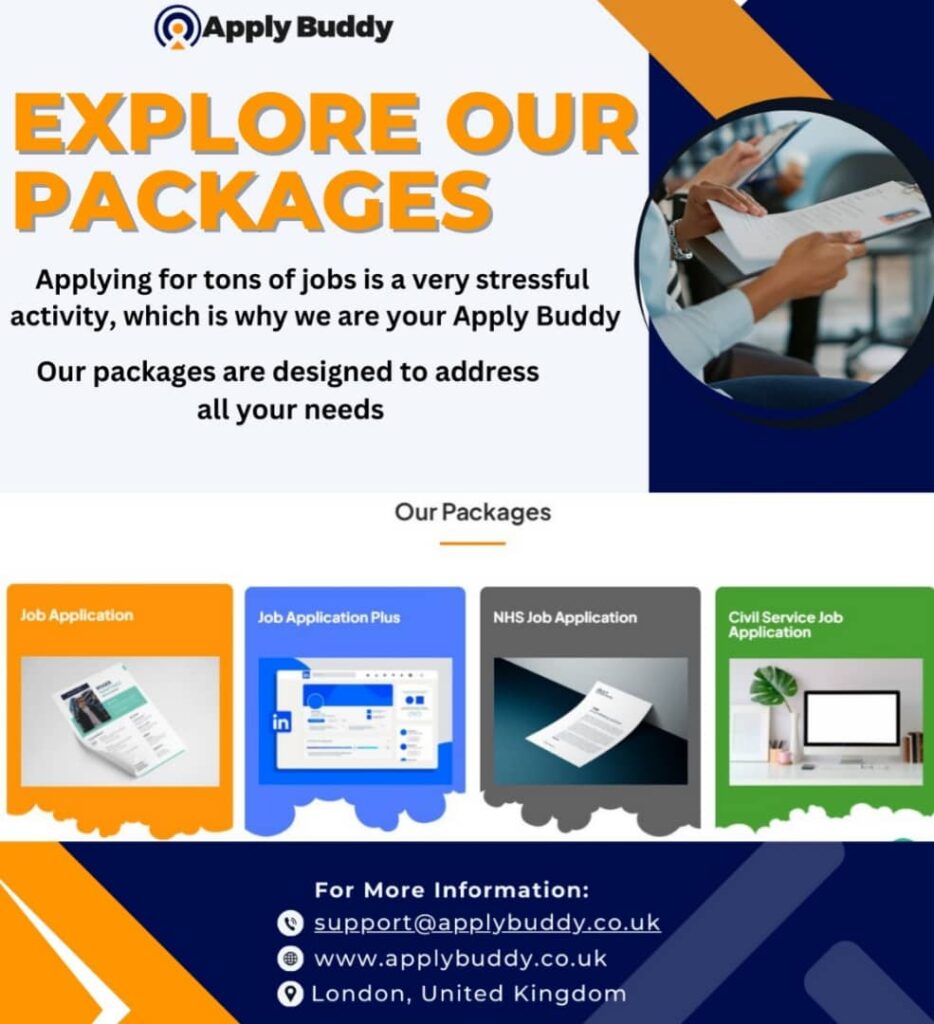Tips for starting a job at a new workplace are essential for anyone looking to make a confident and successful transition into a fresh, professional environment. Starting a new job is an exciting and transformative experience, filled with opportunities to grow, learn, and connect. However, navigating those first few days and weeks can feel daunting without the proper guidance. From understanding company culture to building relationships with colleagues, a thoughtful approach can set you up for success.
Your early actions shape impressions and lay the foundation for long-term achievements. With the proper preparation and mindset, you can turn this new chapter into a rewarding professional growth and fulfilment journey.
Preparing for Your First Day at a New Job
The preparation you put into your first day can significantly influence your experience. Arriving well-organized and informed about your role demonstrates enthusiasm and dedication to making a strong start. By planning, you’re setting the tone for a successful journey in your new role and creating the foundation for your long-term success.

Research the Company Culture
Every company has its own unique culture, values, and working methods. Researching the organisation’s culture can provide insights into what’s expected and help you adapt quickly. Explore the company’s mission statement, recent news, and employee reviews to understand its workplace environment. If possible, connect with current employees to learn firsthand about their experiences. By doing this, you’ll feel more prepared and demonstrate initiative. Starting with a clear understanding of the company’s ethos will make aligning with its values and expectations easier, helping you integrate seamlessly.
Read also: The 30-60-90 Day Plan: Your Secret Weapon for New Job Success
Organize Your Documents and Essentials
There’s nothing worse than feeling unprepared on your first day. Take time beforehand to organise all necessary documents, such as identification, bank details, and any paperwork requested during onboarding. Additionally, ensure you have work essentials like a notebook, pen, and laptop if required. You can focus on acclimating to your new role and environment by preparing for administrative formalities. This preparation might seem small, but it sends a powerful message about your professionalism and organisational skills. First impressions matter, and being prepared can help you start strong.
Set Personal Goals for Your First Month
Clear goals for your first month can give you direction and keep you focused. Consider what you want to achieve—mastering a key responsibility, forming relationships with colleagues, or understanding how your role fits into the bigger picture. These goals don’t have to be overly ambitious; even small, attainable objectives can provide a sense of accomplishment. Writing them down and revisiting them weekly can help track your progress. This approach keeps you motivated and sets a foundation for continued success and professional growth in your new position.
Read also: Why Are Company Values Important
Building Relationships with New Colleagues
Your colleagues are critical to your overall experience at a new workplace. Networking doesn’t have to be intimidating; it’s about showing genuine interest and creating mutual respect. When starting, prioritise introductions, seek opportunities to help others, and participate in group activities, which helps build strong relationships early on and lay the groundwork for long-term professional success.

Introduce Yourself Confidently
Introducing yourself can feel intimidating, especially in a new environment, but it’s a crucial first step. When meeting colleagues, smile, maintain eye contact, and offer a firm handshake. Share your name, role, and perhaps an interesting fact about yourself to make your introduction memorable. Confidence in your introduction reflects self-assurance and approachability, making it easier for others to connect with you. Remember, first impressions last, and taking the initiative to introduce yourself sets the tone for building positive relationships. With practice, these initial interactions can blossom into valuable professional connections.
Seek Guidance and Offer Help
Workplaces thrive on collaboration, and knowing when to seek guidance or lend a helping hand is essential. If you’re unsure about a task, don’t hesitate to ask for clarification—it shows you’re eager to learn and get things right. At the same time, offering assistance to colleagues when appropriate builds trust and rapport. These actions create a culture of reciprocity and demonstrate that you’re a team player. Workplace success often stems from strong collaborative relationships, and balancing the roles of learner and contributor can significantly enhance your integration.
Participate in Team Activities
Team activities provide an excellent opportunity to bond with colleagues and understand group dynamics. Participating in a casual coffee break, a team lunch, or a structured team-building event shows that you’re engaged and willing to connect. These interactions often reveal shared interests and help build camaraderie outside formal work tasks. By participating actively, you’ll establish yourself as approachable and invested in fostering a positive workplace culture. Ultimately, these activities can transform professional relationships into genuine friendships, enriching your experience in the workplace.
Read also: Project Management Competency-Based Interview Questions
How to Master the Job Responsibilities
Transitioning into a new role involves more than learning the job description. It’s about understanding expectations, identifying priorities, and consistently delivering value. This process might take time, but with dedication and focus, you’ll meet and exceed expectations, creating a strong foundation for your long-term career growth.
Understand Your Role and Expectations
Clarity around your responsibilities is key to performing effectively in a new role. During onboarding, ask questions to understand your job’s scope, key performance indicators (KPIs), and your manager’s expectations. Knowing what’s required helps you prioritise tasks and focus on what truly matters. Misunderstandings can lead to mistakes, so don’t shy away from seeking clarification. This proactive approach shows that you value precision and are committed to meeting expectations. A clear understanding of your role lays the groundwork for a confident and productive start in your new workplace.
Take Initiative and Be Proactive
Being proactive is one of the best ways to stand out in a new job. Don’t wait for tasks to come to you—seek opportunities to contribute. Whether volunteering for projects or proposing solutions to challenges, taking the initiative demonstrates your commitment to adding value. Being proactive also helps you develop a reputation as a go-getter who doesn’t just fulfil expectations but exceeds them. This attitude not only impresses your colleagues but also opens doors to new opportunities, helping you grow professionally while making a positive impact.
Organize Your Workload Effectively
Effective workload management is crucial, especially when adjusting to a new role. Start by listing your tasks and prioritising them based on urgency and importance. Tools like digital calendars, task management apps, or a simple notebook can help you stay organised. Breaking tasks into smaller, manageable steps can make them feel less overwhelming. Staying on top of deadlines and consistently delivering quality work boosts your confidence and builds trust with your team. Remember, strong organisational skills are a hallmark of successful professionals.

Looking for your dream job?
Apply Buddy is your trusted partner for NHS, Civil Service, and global job applications.
Simplify the process with tailored guidance, expert tips, and tools to create standout applications.
Whether local or international, we’ll help you land the perfect role.
Your success starts with Apply Buddy!
Navigating the Workplace Environment
Adapting to a new workplace environment involves understanding its culture, norms, and expectations. It’s a process that requires patience, observation, and a willingness to adjust. The key is to remain open-minded and proactive about learning. A flexible and resilient approach helps you navigate challenges and positions you as a valued and respected team member.
Embrace the Learning Curve
Every new job comes with a learning curve; it is essential to embrace it with patience and determination. Mistakes are natural during the initial phase but also valuable learning opportunities. Approach challenges with a growth mindset, viewing them as stepping stones to mastering your role. Be curious, ask questions, and seek resources to help you improve. By embracing the learning curve, you’ll develop new skills and build confidence in your abilities, setting the stage for long-term success in your new position.
Stay Open to Feedback and Self-Improvement
Feedback is a powerful tool for growth, and being open to it can significantly enhance your performance. Constructive feedback highlights areas where you can improve, while positive feedback reinforces your strengths. Actively seeking input from colleagues and supervisors demonstrates maturity and a willingness to learn. Incorporate feedback into your daily routine and track your progress. This commitment to self-improvement helps you excel in your role and earns you respect from your peers.
Maintain a Positive Attitude
Positivity can make a world of difference when starting a new job. A positive attitude isn’t just about staying optimistic—it’s about approaching challenges with resilience and an open mind. Your energy influences those around you, and maintaining a cheerful disposition can foster a collaborative and supportive work environment. Focusing on solutions rather than problems can help you remain motivated even on tough days. Positivity is contagious, and staying upbeat will inspire those around you while reinforcing your sense of purpose and determination.
Conclusion
Starting a new job is an exciting opportunity to grow, connect, and succeed. With thoughtful preparation, a proactive mindset, and a commitment to building relationships, you can ease the transition and set yourself up for success. These tips for starting a new job will help you confidently navigate your early days, ensuring you make a strong and lasting impression.
FAQs: Tips for Starting a Job at a New Workplace
How do I introduce myself at a new job?
Introduce yourself confidently at a new job by sharing your name, role, and enthusiasm for joining the team. Keep it concise and professional, mentioning relevant experience or interests that align with your position. Maintain a friendly demeanour, make eye contact, and engage with colleagues to build rapport and establish a positive impression.
What should I do in the first week at a new job?
In your first week at a new job, focus on building relationships by introducing yourself confidently and engaging with colleagues. Understand your role by clarifying expectations with your manager. Organise your tasks, observe the company culture, and embrace learning opportunities. Stay positive, proactive, and open to feedback for a strong start.
How can I make a great first impression at a new job?
To make a great first impression at a new job, arrive on time, dress appropriately, and bring a positive attitude. Be attentive, introduce yourself confidently, and actively listen to colleagues. Show eagerness to learn and contribute while maintaining professionalism and respect for workplace culture. Early impressions set the tone for success.
How do I build trust with my new colleagues?
Building trust with new colleagues involves being authentic, approachable, and dependable. Introduce yourself confidently, actively listen during conversations, and respect others’ opinions. Fulfil commitments promptly, offer help, and participate in team activities. Demonstrating consistency and openness fosters stronger connections and creates a positive foundation for workplace relationships.
